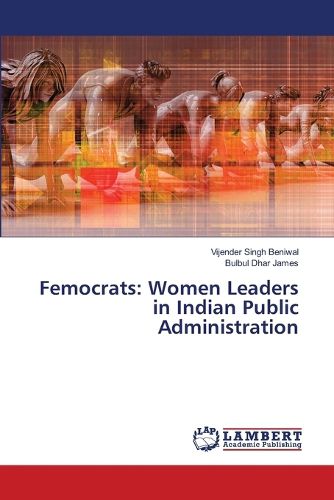Readings Newsletter
Become a Readings Member to make your shopping experience even easier.
Sign in or sign up for free!
You’re not far away from qualifying for FREE standard shipping within Australia
You’ve qualified for FREE standard shipping within Australia
The cart is loading…






This title is printed to order. This book may have been self-published. If so, we cannot guarantee the quality of the content. In the main most books will have gone through the editing process however some may not. We therefore suggest that you be aware of this before ordering this book. If in doubt check either the author or publisher’s details as we are unable to accept any returns unless they are faulty. Please contact us if you have any questions.
Sustainable Development Goal No. 5 aspires to - "achieve gender equality and empower all women and Girls". Further, according to UN, "gender equality is not only a fundamental human right, but a necessary foundation for a peaceful, prosperous and sustainable world". However, ironically women inhabit only 20% of decision-making places in public and private realm. Worldwide their visibility is merely 1-5% at apex level positions in organisations. Alike, the percentage of women in the services is abysmally low. The study probes gender equity in All-India Services in general and the Indian Administrative Service (IAS) in particular. The data for the study is gathered from 150 questionnaire, 27 in-depth interviews and various reports. The study reveals that women are underrepresented in the Indian Administrative Service. Women are merely 13.5 percent at the position of secretary to the government of India. The thesis argues unambiguously that women are confined mainly in the sectors that foster prevailing gender stereotypes of their innateness province of bear, rear and nurture. Finally, the study noticed explicitly occurrences of discrimination against women in IAS especially at apex.
$9.00 standard shipping within Australia
FREE standard shipping within Australia for orders over $100.00
Express & International shipping calculated at checkout
This title is printed to order. This book may have been self-published. If so, we cannot guarantee the quality of the content. In the main most books will have gone through the editing process however some may not. We therefore suggest that you be aware of this before ordering this book. If in doubt check either the author or publisher’s details as we are unable to accept any returns unless they are faulty. Please contact us if you have any questions.
Sustainable Development Goal No. 5 aspires to - "achieve gender equality and empower all women and Girls". Further, according to UN, "gender equality is not only a fundamental human right, but a necessary foundation for a peaceful, prosperous and sustainable world". However, ironically women inhabit only 20% of decision-making places in public and private realm. Worldwide their visibility is merely 1-5% at apex level positions in organisations. Alike, the percentage of women in the services is abysmally low. The study probes gender equity in All-India Services in general and the Indian Administrative Service (IAS) in particular. The data for the study is gathered from 150 questionnaire, 27 in-depth interviews and various reports. The study reveals that women are underrepresented in the Indian Administrative Service. Women are merely 13.5 percent at the position of secretary to the government of India. The thesis argues unambiguously that women are confined mainly in the sectors that foster prevailing gender stereotypes of their innateness province of bear, rear and nurture. Finally, the study noticed explicitly occurrences of discrimination against women in IAS especially at apex.